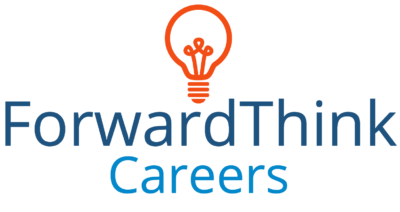

You’re not imagining it — age discrimination in hiring is a real problem. And it can have a profound effect on career success.
Now, while actual charges filed under the Age Discrimination in Employment Act (ADEA) have decreased to about 17,000 in 2018 from their peak of about 25,000 in 2008, this number is by no means acceptable.
And this statistic fails to take into account age discrimination in hiring that’s subtle, unconscious and unreported.
Why Employers Discriminate Against Older Workers
Though the US Equal Employment Opportunity Commission “forbids age discrimination against people who are age 40 or older,” employers still manage to get away with it.
And while these concerns are often totally unfounded, many companies make unflattering assumptions about seasoned candidates. Here are a few:
> They lack the technical skills required of the role.
> They’ll require too high a salary and may not respect or “fit in” with younger workers.
> They won’t have the energy or stamina to put in long hours.
> They’ll be set in their ways and not capable of quickly adapting to new processes or workflows.
Feeling discouraged yet? Not to worry! As I’ve successfully helped older job seekers land new jobs, I’ve learned there are concrete and effective ways to overcome these objections. Here are 6 tips:
Tip #1 – Give Your Resume a Make-Over
Age discrimination while job hunting can feel very personal, like you’re being rejected as a human being. But often times employers are actually rejecting your resume for seeming too dated.
They jump to all sorts of false conclusions about you as a professional solely based the appearance of your resume. Is it fair? Of course not!
But first impressions matter. Here are a few pointers for creating a modern resume:
► Times New Roman and teeny tiny font size scream “old school” — so up the font to 11 point and use san serif font types like Arial, Helvetica, Calibri and Verdana.
► Don’t let an AOL or Hotmail email address date you; switch to Gmail instead.
► Cut the objective statement and replace it with a professional summary focusing on technical skills. But don’t start your summary with “Marketing professional with 25 years experience…” “10+ years” will suffice (or eliminate the number of years completely).
► Drop work experience beyond 12-15 years. Employers won’t see it as relevant anyway.
► Remove graduation dates from your education section.
Tip #2 – Focus on Technical Skills and Recent Accomplishments
Seasoned job seekers often feel like they have to showcase their entire work history, thinking that more is better. But recruiters and hiring managers want to know that your skills are up to date and that your current and most recent experience is in alignment with the role they’re filling.
So make sure you’re calling attention to your technical skills and most recent achievements as they pertain to the job at hand — both on your resume and in an interview.
And as you’re looking at job descriptions, take stock of the required technical skills and honestly assess if you have any skills gaps. If the answer’s yes, make sure to continually update your skills through online certifications and courses.
Aside from certificate or extended learning programs at colleges, you can find affordable courses through LinkedIn Learning, Lynda and Udemy. It’s wise to create a Recent Coursework subsection on your resume and highlight them there.
Tip #3 – Target the Right Jobs & Companies
Another mistake I see older job seekers make is going after jobs they’re clearly overqualified for. I had a client who had been applying for director level roles. But after not hearing back from employers, she got discouraged and wanted to start targeting manager level roles instead. I knew, however, that she’d be competing against younger candidates who wouldn’t require as high of a salary, thus impairing her chances even more.
Therefore, it’s crucial to target opportunities that are in alignment with your level of expertise and years of experience. If at first glance you know you’re overqualified, don’t waste your time applying. It will be obvious to the employer as well!
One a similar note, some companies are more open to hiring older workers than others. More traditional industries — law, healthcare, insurance, government, etc. — value years of experience, whereas edgy tech start ups may seem like they’re only hiring people under 30.
An easy way to gather some intel is to look on LinkedIn. After typing the company name into the search bar, click on All Employees to assess the age range of the staff.
Tip #4 – Embrace Social Media (Especially LinkedIn)
As an older job seeker your digital presence matters more than you think. But just being on social media isn’t enough. You need to be strategic about it.
Where you should spend the majority of your time is on LinkedIn. Recruiters and hiring managers are vetting candidates on LinkedIn before bringing them in for an interview. Not only that, but they’re also sourcing candidates using the LinkedIn Recruiter platform to find people with the right combination of skills and experience.
All of this means that if you don’t currently have a LinkedIn profile, you need to create one ASAP. And similar to your resume, focus on your technical and other relevant skills and recent accomplishments. Use the About and Skills & Endorsements sections to emphasize these. Also, your work history should mirror your resume (which may mean cutting old positions).
Another LinkedIn strategy is to leverage your network and learn about opportunities that might not be posted online. Where are your friends and former colleagues in your age group working? Perhaps they can refer you to opportunities at their companies.
Additionally, you can use LinkedIn, Facebook and Twitter to post relevant articles (or write your own) to demonstrate you’re up to date on the latest industry trends.
Worried about your profile photo on these social media platforms giving away your age? I understand your hesitancy, but there are ways to make these photos work for you, not against you. (See the next tip.)
Tip #5 – Exude Vibrancy & Modernity
As difficult and potentially controversial as it is to say, appearances matter. And first impressions are practically impossible to undo. So as an older job seeker, it’s important to ensure your look is current and your energy is vibrant.
I’m not saying to put pink streaks in your hair and dress like a 20-something. But an updated haircut and stylish glasses and clothes can go a long way. Whether it’s putting together an interview outfit or posing for a LinkedIn profile photo, consult younger friends and family members for their honest feedback.
And staying healthy and fit not only makes you feel more positive during this stressful time but can also increase your energy level. Remember, it’s all about overcoming false assumptions employers may have about older workers.
Tip #6 – Get Creative & Don’t Give Up
Most people think that, at any age, finding a job is about applying for as many jobs as possible. But as an older job seeker, this couldn’t be further from the truth. You’ll have better luck tapping your personal and professional networks and thinking outside the box.
If you’re not having luck finding a normal 9-5 job, exploring consulting or remote work might be an alternative. It’s also common for older workers to use their expertise to start their own service based businesses. And sometimes volunteer work can turn into a full-time job.
Whatever the case, keep exploring different options and don’t give up. The world needs your knowledge and experience! It’s really about finding the right opportunity where you can make a powerful impact.
And that may be lost on the youth…



